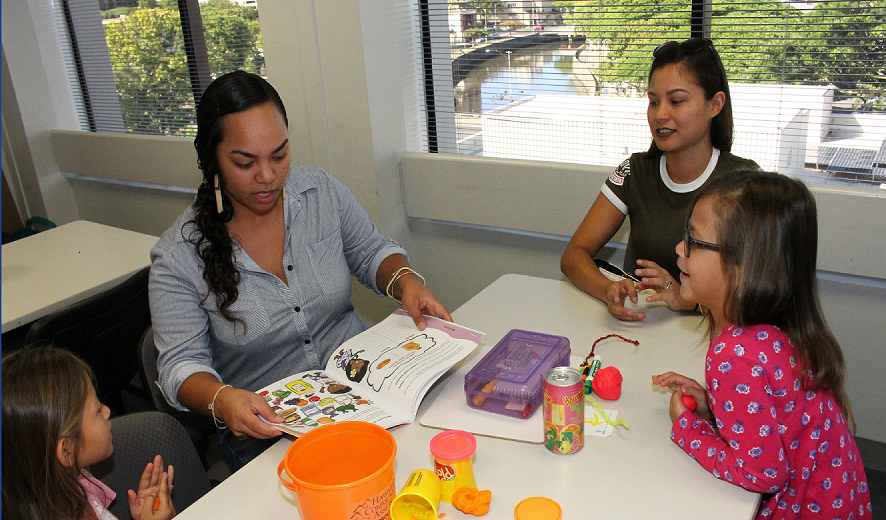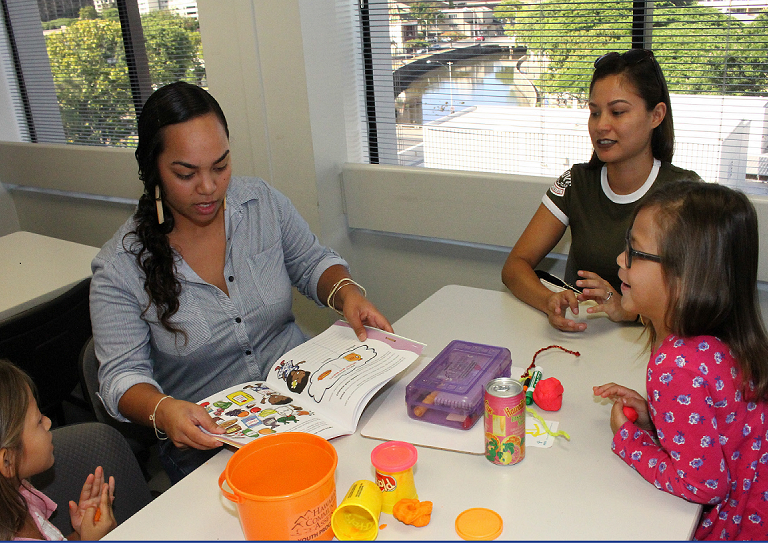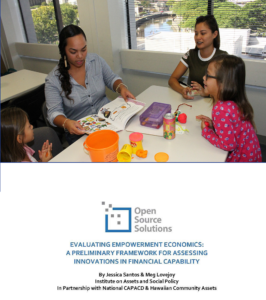Evaluating Empowerment Economics: A preliminary framework for assessing innovations in financial capability
by Institute of Assets and Social Policy (IASP), in partnership with National CAPACD, and Hawaiian Community Assets (HCA)
February 2019
The Federal Reserve Bank of San Francisco partnered with National CAPACD and IASP to publish the Evaluating Empowerment Economics report as a part of their new Open Source Solutions series. The report shows how Asian American, Native Hawaiian, and Pacific Islander (AAPI) leaders are protecting and building wealth and power at the community level.
Empowerment Economics is a multi-generational and culturally responsive approach to financial capability developed by and for low-income AAPIs and other communities of color. This preliminary evaluation framework makes visible the innovative approaches and potential outcomes associated with Empowerment Economics. IASP developed this framework with National CAPACD and HCA through a review of the current research on financial capability evaluation. The framework explores the program and evaluation practices of thirteen regionally diverse National CAPACD member organizations.
Read the full report here.
Empowerment Economics Evaluation Framework
| Locus of Impact→ Focus of Impact↓ | Individual Level | Family Level | Community Level | Systemic Level |
|---|---|---|---|---|
| Financial Capability & Wealth |
|
|
|
|
| Power |
|
|
| |
| New Narratives |
|
|
| |
| Multi-generational Connectedness |
|
|
| |
| Cultural Connectedness |
|
|
| |
| Well-Being |
|
|
|



